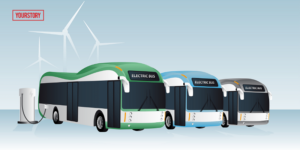Gayatri Agrawal’s early years in the bustling, energetic environment of a business-oriented family in Kishangarh, Odisha, shaped her future path as an entrepreneur.
Growing up in a tier-three town, her childhood years were spent observing her father, uncle, and grandfather conduct business over the phone, unknowingly planting the seeds of entrepreneurial spirit in her.
“I used to play games pretending to negotiate sales calls,” she tells HerStory.
Recognising that Kishangarh lacked schooling beyond the 10th grade, Agrawal’s family moved to Visakhapatnam in Andhra Pradesh when she was in the seventh grade.
As the eldest of three siblings and the first girl child in her family, Agrawal grew up shouldering high expectations, which she channeled into her passion for learning and creativity.
Since she was always drawn to business, Agrawal chose Commerce in her senior school years, but soon discovered her love for design and architecture. This passion led her to pursue a five-year architecture degree in Mumbai, where she unexpectedly encountered coding while exploring digital architecture. The experience opened a new world of possibilities, combining her creativity with technological skills.
“Architecture gave me a strong foundation in creativity and problem-solving, but learning to code during those years gave me a new lens to look at innovation,” she says.
Inspiration behind ALTRD
During the COVID-19 pandemic, while freelancing for international clients from her hometown, Agrawal observed how data, artificial intelligence (AI), and machine learning (ML) were emerging as transformative forces across industries.
She pursued a master’s degree in machine learning and data science in Spain, gaining expertise in Python and AI. Her journey took a decisive turn when she developed an AI tool for the Barcelona city government, earning an award for her work.
After sharing her experiences online, Agrawal’s network in India pointed out an unmet need: while AI was gaining traction globally, Indian businesses often lacked bespoke solutions tailored to their workflows. This realisation led to the inception of ALTRD in December 2022.
“I saw a gap where businesses were using five or six generic tools to complete one task. We decided to
create customised AI solutions that streamlined workflows seamlessly,” she says.
The company specialises in building bespoke AI tools for businesses, from retail recommendation bots to tech-driven marketing campaigns. Unlike generic tools, these AI solutions are tailored to each client’s specific data and needs, says Agrawal.
For example, the company recently developed a bot that allows users on e-commerce websites to give inputs on personalised searches—such as the need for a bag with a laptop compartment and a water bottle holder for a short trip, or a specific garment for a certain body type— – and receive precise recommendations.
The company has also gained recognition for its tech-driven campaigns, helping brands like Flipkart and Amazon achieve consumer engagement. “One of our Women’s Day campaigns reached 12 million impressions, showcasing the impact of combining AI and creativity,” says Agrawal.
In just one year, ALTRD has scaled significantly, working with over 35 brands. “Our approach—building once and selling multiple times with slight customisations—has enabled rapid growth while maintaining high profitability. Despite operating in a tech-heavy industry, our profit margins hit 70–80%, largely due to our small yet efficient team of 10 core members,” says Agrawal.
“Our scaling is strategic. We avoid blindly expanding the team because our work involves sensitive client data. It’s crucial to hire thoughtfully and maintain trust,” she adds.
Challenges and opportunities for women in tech
Agrawal says, when she enters rooms dominated by men, there’s often skepticism about whether she can deliver. However, she remains unfazed, as her confidence and expertise usually dispel doubts in a field which she says does have a stark gender divide.
“For backend roles in engineering and AI, the applicants are almost exclusively male, whereas women mostly apply for client-facing roles,” she says.
Despite these hurdles, Agrawal says she is committed to supporting women in tech. She collaborates with women-focused communities like WOW (Women Opportunity Network) and GenX to mentor female entrepreneurs and integrate AI into their workflows.
Affirming her belief in the power of mentorship, Agrawal says the first step is to ask for work. “Reach out to women entrepreneurs in tech. Many of us are willing to guide and support you, even if it’s for a temporary role,” she says.
“In a field like AI, staying updated is essential. Never let the learning stop.”

![You are currently viewing [100 Emerging Women Leaders] How Gayatri Agrawal is inspiring women to embrace tech](https://blog.digitalsevaa.com/wp-content/uploads/2024/11/100EWLGayatri-AgrawalFeatureImage-1732290015187-scaled.jpg)








